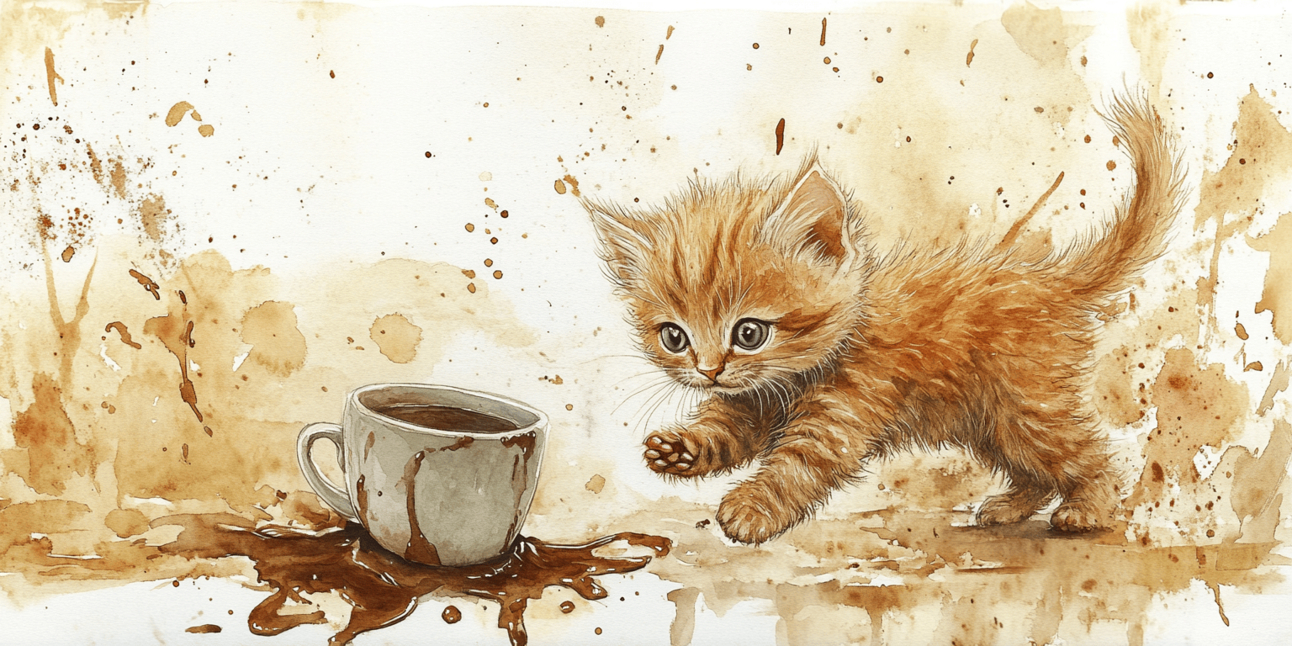How much coffee is too much coffee?
- basics ·
- science

Hope you are doing well, coffee lover.
Let’s dive straight into the content because this will be a long rant of all my research on this topic.
If you google “How much coffee is too much coffee?” it will give the standard response saying 400mg of caffeine is the FDA-approved limit. And if you make calculations, it will amount to ~4 cups of brewed coffee per day. If you really drink those many cups, it may make you nauseous and jittery.
This is a question I stumble upon a lot. I went down rabbit holes on the internet to solve this for myself.
I came to a weird conclusion. It highly depends from person to person. And, you can guesstimate yours.
Keeping all this in mind, I want to not just talk about what are the limits in general, but also want to leave you with how you can figure this out for yourself and keep enjoying caffeinated drinks for long.
Understanding how caffeine works
In simple terms, caffeine blocks the adenosine receptors, the ones that tell you it’s time to sleep, in your brain. It also stimulates the release of chemicals in your brain which increase alertness. You feel active.
Over time, your brain thinks you are not getting rest and increases the number of receptors. That’s the reason you don’t feel the same boost in energy. And also the reason you probably can’t start your morning without caffeine.
This is how our body (mainly the brain) adapts to caffeine.
One more interesting fact is that caffeine doesn't get rid of the adenosine, it just blocks it from attaching to the receptors. So they still linger around. This is the reason for your afternoon crashes if you drink coffee in the morning.
This fact supports the concept of napaccino, which is a cappuccino followed by a nap. Caffeine takes around 20 minutes to kick in. By that time, you clear your sleepiness with the nap.
You will be unstoppable after this. Try if you have never done it.
Coming back to caffeine...
Caffeine has a half-life of around 6 hours. This means if you have consumed 100mg of caffeine at 10AM in the morning, by 4PM there is still 50mg of caffeine left in your body. It halves itself every 6 hours.
This is interesting because now we have something to work with.
We all adapt to caffeine.
But anyway, it’s good to know what your limits are. For me, I have observed that I can sleep well with around 40mg of caffeine, so I try to stay around that. Remember that this depends from person to person.
50mg seems to be the safe recommended limit. Well, it’s always good to have zero. Because even if we sleep, having caffeine in our system doesn’t let us have a restful sleep. I observed how much sleep I actually needed when I took a week’s break from caffeine. More on that in the coming section.
If you want to deeply understand what caffeine does to us, this Huberman Lab video is really informative.
How much caffeine is in my coffee
The amount of caffeine that ends up in your cup depends on many factors. I went down that rabbit hole and believe me it reaches the diminishing returns state very soon.
But we can keep ballpark figures in our mind
Espresso is the easiest. Preparation is standard. One shot has about 75mg.
For every other coffee brewing method, everyone has their own recipes and coffee-to-water ratios. What we can do here is to keep an upper limit. For Arabica coffee, you can get 10mg per 1 gram of ground coffee at max.
So a pour over brewed with 12g of coffee can have up to 120mg caffeine.
Upper limit is a safe bet. If you want more accuracy, you can read How Much Caffeine in Coffee Cup? Effects of Processing Operations, Extraction Methods and Variables paper.
There are also a few apps that promise to calculate amounts of caffeine based on all the parameters. HiCoffee for iPhones is one. It also gives you a graph of residual coffee in your system over time. Really helped make informed decisions on whether to drink that extra cup or not, which most of the time I ignore, lol.
Before discovering that app, I built a little tracker for myself.
So based on this information, see how much you drink and how much is left in your system by the time you sleep. Make a note of these things. And the next day, make a note of how your sleep was.
Knowing when to stop
Anything in excess is bad. And any addiction is not worth it.
If you have headaches when don’t get your cup of coffee at the time you regularly drink, you are addicted my friend. Try gradually limiting your coffee intake to zero and stay there for at least 2 weeks if you wish to be less dependent on caffeine. Your body will thank you.
The podcast episode from Huberman Lab I shared above talks about different ways to reset.
I took a break from caffeine recently. Not because I was addicted, but mainly because I wasn’t feeling the effects of it after I drink it. I wanted to reset my adenosine receptors. One week is not really enough for them to reset completely but that definitely helped. I immediately felt the difference.
If you are still reading this long post, you are as geeky as I am. I would like to know if this helped.
Please DM me on Twitter / 𝕏 and let me know. And if you’ve done any similar research, what were your takeaways?
As this is a long enough post and I have shared quite a few links (rabbit holes for you to explore), I am skipping other sections we generally have.
Have a caffeinated weekend. See you.
Keep on brewing!